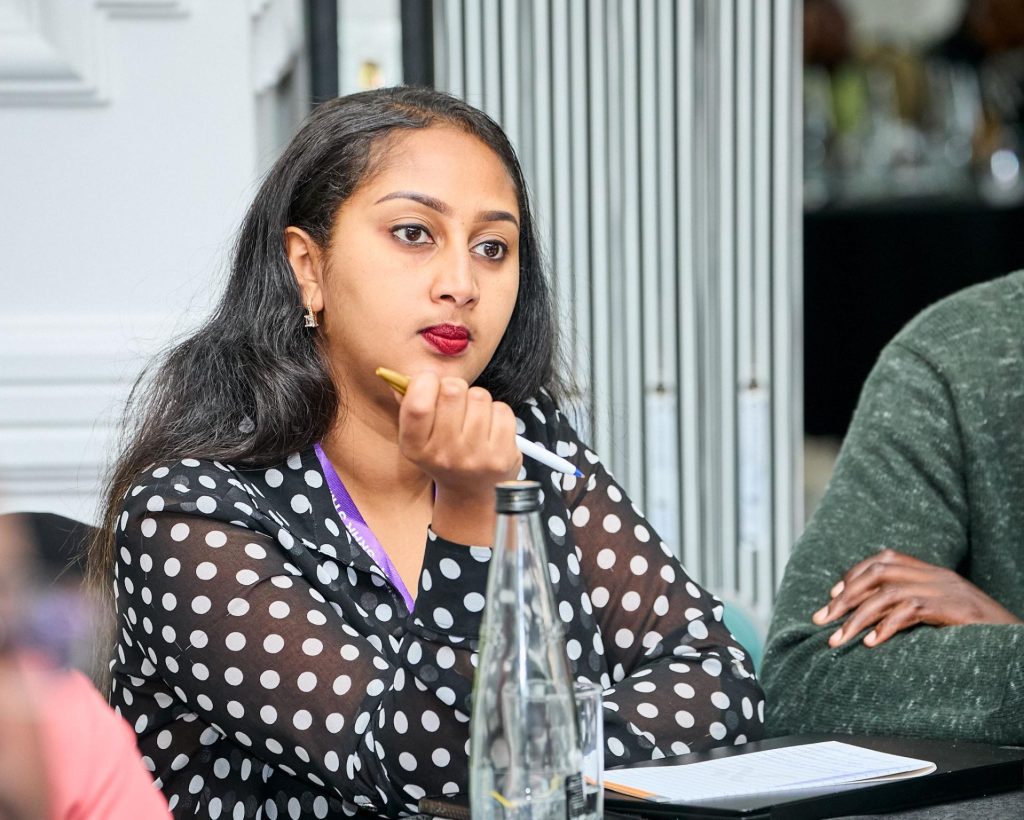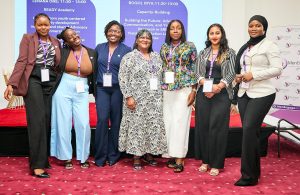Advancing Sexual and Reproductive Health: Make Way’s contribution at the MenEngage Africa SRH Symposium
 19 September 2024
19 September 2024

From August 12-14, 2024, MenEngage Africa, in collaboration with Sonke Gender Justice, hosted the SRH Learning and Exchange Symposium. The event served as a vital platform, bringing together over 250 diverse participants, including practitioners, policymakers, community leaders, and young people from across Africa.
The symposium focused on advancing Sexual and Reproductive Health (SRH) and Gender Equality Across Africa, emphasizing the importance of collaboration and knowledge exchange.
One of the key outcomes:
One of the most significant outcomes of the symposium was the “Shared Innovative Approaches and Promising Practices documentation”, which captured the best practices and innovative approaches employed by diverse organizations working in SRH. This collection serves as a valuable resource for organizations working to advance SRH across Africa.
Presentation by Make Way Ethiopia
Make Way Ethiopia, a successful project led by VSO Ethiopia, in partnership with Ipas Ethiopia and FAWE Ethiopia Chapter, was selected for an oral presentation at the symposium titled “Embracing Intersectionality.” Betselot Mengesha of Ipas Ethiopia represented the project delivering a presentation that was collaboratively developed with CCG Ethiopia.
Watch Betselot give her presentation (starting at 1:54:09):
The presentation
This presentation served as a valuable opportunity to showcase the impactful work of Make Way Ethiopia on a wider stage, receiving positive feedback (see below) that reaffirmed the project’s significance. The presentation highlighted Make Way’s transformative approach, which addresses the complex and compounded challenges faced by marginalized youth, including those with disabilities, Internally Displaced Peoples (IDPs), and Out and In-School Youth.
“Impressed by Make Way Ethiopia’s commitment to inclusivity and the innovative approach to addressing the needs of marginalized youth. The work is truly inspiring and sets a great example for others in the field.”
“The presentation provided valuable insights into the unique needs of marginalized youth, including those with disabilities and IDPs. Make Way Ethiopia’s approach is a model for how to address these challenges effectively.”
The presentation clearly depicted the cornerstone of Make Way’s approach – its commitment to intersectionality – by recognizing the systemic discrimination faced by individuals based on gender, economic status, disability, and other identities. The project actively addresses the complex interplay of these factors that significantly affect the SRH of marginalized youth.
It was also able to provide examples on intersectionality by describing the multi-layered barriers a young Ethiopian girl with disability can face to access SRH information and services due to poverty, stigma, illiteracy, and inaccessible facilities, structural barriers at health facilities, health care providers’ biases, etc. It was clarified that Make Way tackles these issues by empowering local organizations and advocating for an intersectional approach to SRH.
Make Way’s achievements
The notable achievements of Make Way and how the achievements were possible were highlighted with this talk:
- Reaching over 36,000 young people with compounded vulnerabilities, providing them with critical SRH information and education. This was achieved through a successful “Train-the-Trainer” model, where women with disabilities received specialized training and subsequently educated more their community members. This approach fosters a culture of inclusivity and understanding within communities.
- Beyond empowering community members, Make Way also recognizes the importance of accessible healthcare services. By training 42 healthcare providers in sign language, the project ensures that persons with hearing impairments receive quality and personalized SRH information.
Multi-stakeholder collaboration
The presentation emphasizes the importance of multi-stakeholder collaboration. Through engagement with the media, community outreach events, and fostering partnerships with various organizations, Make Way has created a powerful network that drives sustainable positive change.
The success of Make Way Ethiopia serves as a testament to the power of intersectionality in understanding and addressing the unique challenges faced by marginalized groups. By focusing on the specific needs of young people, particularly those with disabilities, Make Way is contributing to building a more equitable and inclusive future for all young people in Africa.
A call to action
The presentation concluded with a powerful quote, “We can continue to champion the rights and well-being of all young people, ensuring that no one is left behind”. By fostering knowledge exchange, collaboration, and a commitment to intersectionality, the MenEngage Africa SRH Learning and Exchange Symposium provided a strong foundation for continued progress on SRH in Africa, particularly through the lens of intersectionality and inclusive practices.





